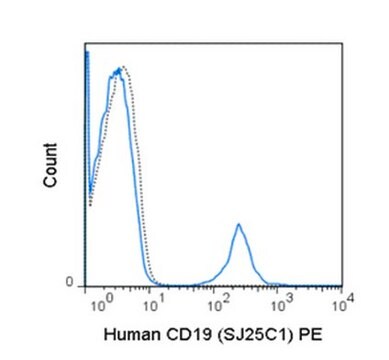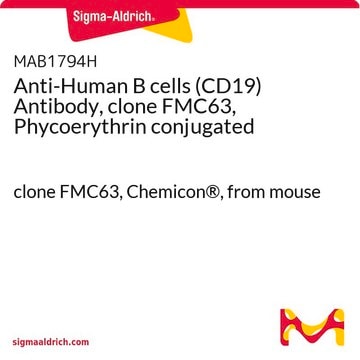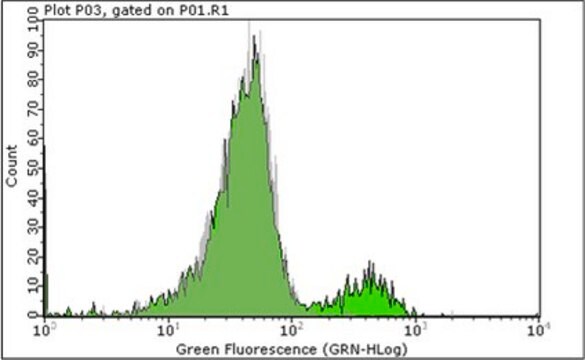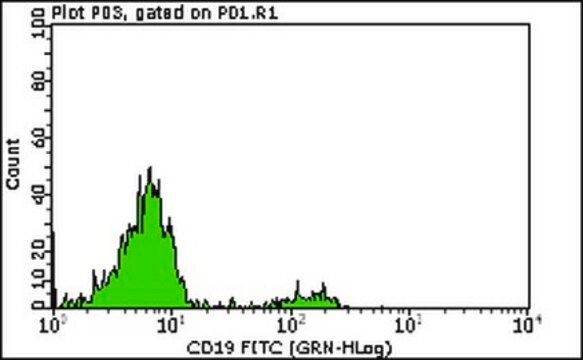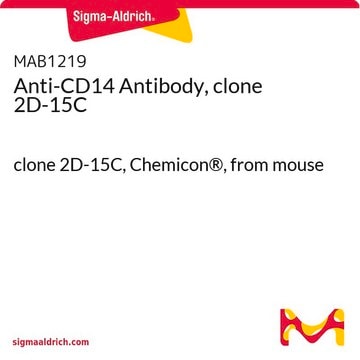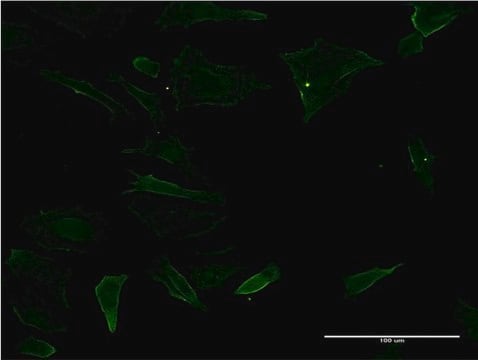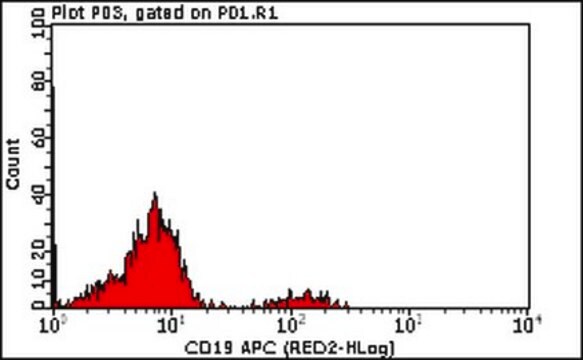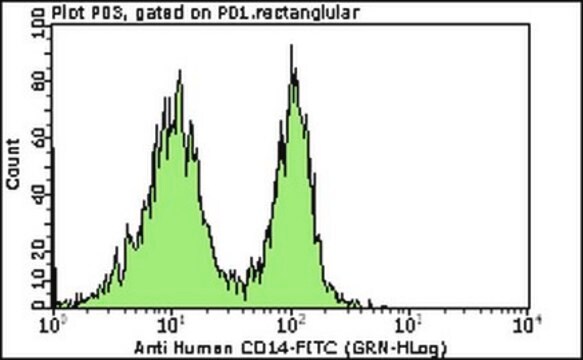MAB1794
Anti-Human B cells (CD19) Antibody, clone FMC63
clone FMC63, Chemicon®, from mouse
Szinonimák:
B-lymphocyte Surface Antigen B4
About This Item
IF
immunofluorescence: suitable
Javasolt termékek
biológiai forrás
mouse
Minőségi szint
antitest forma
purified antibody
antitest terméktípus
primary antibodies
klón
FMC63, monoclonal
faj reaktivitás
human
gyártó/kereskedő neve
Chemicon®
technika/technikák
flow cytometry: suitable
immunofluorescence: suitable
izotípus
IgG2a
NCBI elérési szám
UniProt elérési szám
kiszállítva
wet ice
célzott transzláció utáni módosítás
unmodified
Géninformáció
human ... CD19(930)
Általános leírás
p I = 7.0
Egyediség
Cell reactivity:
Normal:Stains all B lymphocytes in peripheral blood and spleen. Negative on granulocytes, monocytes, platelets, erythrocytes and T lymphocytes.
Clinical:
B cell chronic lymphocytic leukemia (B-CLL) +
Pro lymphocytic leukemia (PLL) +
Hairy cell leukemia (HCL) +
Common acute lymphoblastic leukemia (CALL) +
Pre-B acute lymphoblastic leukemia (pre-B-ALL) +
NULL-acute lymphoblastic leukemia (NULL-ALL) +
T common lymphocytic leukemia (T-CLL) -
Immunogén
Alkalmazás
Inflammation & Immunology
Immunoglobulins & Immunology
SUGGESTED USAGE DILUTION
Flow cytometry and Indirect Immunofluorescence 1:25
Dilute with isotonic buffer. Use 50 μl of diluted antibody per 1 x 10E6 peripheral blood mononuclear cells (PBMC) in 100 μl buffer.
Kapcsolódás
Fizikai forma
Tárolás és stabilitás
WARNING: The monoclonal reagent solution contains 0.1% sodium azide as a preservative. Due to potential hazards arising from the build up of this material in pipes, spent reagent should be disposed of with liberal volumes of water.
Egyéb megjegyzések
Jogi információk
Jogi nyilatkozat
Nem találja a megfelelő terméket?
Próbálja ki a Termékválasztó eszköz. eszközt
Tárolási osztály kódja
12 - Non Combustible Liquids
WGK
WGK 2
Lobbanási pont (F)
Not applicable
Lobbanási pont (C)
Not applicable
Analitikai tanúsítványok (COA)
Analitikai tanúsítványok (COA) keresése a termék sarzs-/tételszámának megadásával. A sarzs- és tételszámok a termék címkéjén találhatók, a „Lot” vagy „Batch” szavak után.
Már rendelkezik ezzel a termékkel?
Az Ön által nemrégiben megvásárolt termékekre vonatkozó dokumentumokat a Dokumentumtárban találja.
Tudóscsoportunk valamennyi kutatási területen rendelkezik tapasztalattal, beleértve az élettudományt, az anyagtudományt, a kémiai szintézist, a kromatográfiát, az analitikát és még sok más területet.
Lépjen kapcsolatba a szaktanácsadással